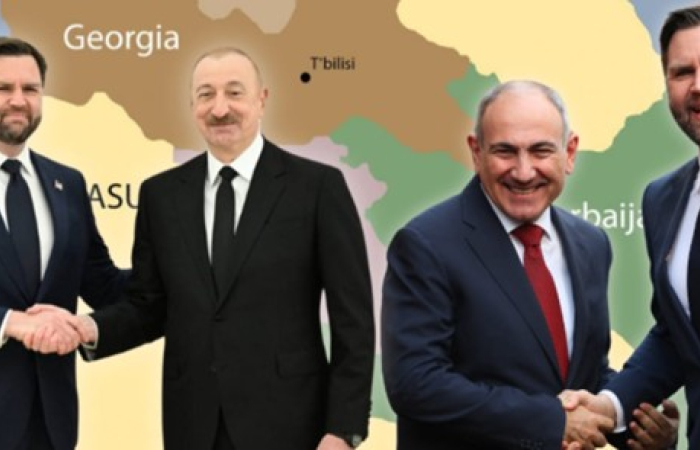The European Parliament has started discussing the resolution on Azerbaijan: the case of Ramil Safarov (2012/2785(RSP)).
The Resolution is as follows: "The European Parliament,
- having regard to its previous resolutions on Azerbaijan with regard, in particular, 24 May 2011,
- having regard to the joint Statement by the EU High Representative Catherine Ashton and Commissioner Fule of 4 September 2012,
- having regard to the statement of the Secretary General of the Council of Europe Thornbjorn Jagland of 4 September 2012,
- having regard to the Partnership and Cooperation Agreement between the EC and Azerbaijan which entered into force in 1999 and to the ongoing negotiations between the two parties of EU-Azerbaijan Association Agreement,
- having regard to Rule 122(5) of its Rules of Procedure,
A. whereas on 31 August 2012 Ramil Safarov, who was convicted for murder and sentenced to life imprisonment in Hungary, was transferred to Azerbaijan,
B. whereas Ramil Safarov had been jailed at a Hungarian penal facility since 2004 after brutally killing an Armenian colleague during a course sponsored by NATO Partnership for Peace Programme in Budapest; whereas Safarov pleaded guilty and expressed no remorse defending his action on the ground that the victim was Armenian,
C. whereas Liutenat Safarov had been declared a national hero in Azerbaijan and a few hours after his return was granted a presidential pardon, set free and in a public ceremony promoted to major,
D. whereas the announcement of the transfer was accompanied by a clarification of the Hungarian authorities stating that the extradition to Azerbaijan was approved in accordance with the terms of the 1983 European Convention of the Transfer of Sentenced Persons, to which Azerbaijan is party,
E. whereas Hungarian officials affirmed that they had received assurances from Azerbaijani government that once returned to his home country Safarov would continue his prison term in an Azerbaijani penitentiary; whereas Azerbaijani authorities reject that assurances were given to Hungary on the case of Safarov;
F. whereas after the extradition of Safarov Armenia suspended diplomatic relations with Hungary,
G. whereas the Safarov release risks to escalate the conflict between Azerbaijan and Armenia,
H. whereas Azerbaijan is actively participating in the European Neighbourhood Policy and the Eastern Partnership, is a founding member of Euronest and is committed to respecting democracy, human rights and the rule of law that are core values of these initiatives,
I. whereas Azerbaijan will take up a non-permanent seat in the United Nations Security Council (UNSC) for the period of 2012 - 2013, and has committed to uphold the values as expressed in the UN Human Rights Charter,
J. whereas Azerbaijan is a member of the Council of Europe and a party to the European Convention on Human Rights (ECHR);
K. whereas Azerbaijan and the European Union is engaged in the negotiations of the Association Agreement;
1. Deplores the pardoning and military promotion of a convicted and sentenced for life imprisonment murderer Ramil Safarov and stresses that such a move undermines Azerbaijan's commitment to respect justice and the rule of law;
2. Rejects any glorification of Ramil Safarov as this runs contrary to the principles of human dignity and justice;
3. Considers that while the presidential pardon granted to Safarov is in line with the letter of the European Convention on the Transfer of Sentenced Persons, it runs contrary to the spirit of the agreement and undermines affirmations by Hungarian government of the assurances received on the case of Safarov;
4. Recognises that European Convention on the Transfer of Sentenced Persons was established on the basis of all states committing to the establishment of justice and respect for the rule of law;
5. Considers it important that the Hungarian authorities defend credibility of their actions by taking formal diplomatic and legal steps towards Azerbaijan with regards to the assurances of continuous imprisonment that Hungarian government claims were received prior to the transfer of Ramil Safarov;
6. Calls on the Hungarian authorities to ask officially for information on enforcement of art 15(c) of the Convention and inform the European Committee on Crime Problems under art 23 of this Convention;
7. Calls on Azerbaijan and Armenia to exercise restraint in order to prevent escalation of the situation in the region;
8. Calls on the High Representative Vice President Catherine Ashton to maintain efforts towards both Armenia and Azerbaijan seeking to de-escalate the situation and find a possible line of dialogue among the conflicting parties;
9. Instructs its President to forward this resolution to the EEAS, European Council, European Commission, the governments and parliaments of the Republic of Armenia and Republic of Azerbaijan, Secretary General of the Council of Europe and UN Human Rights Council".







